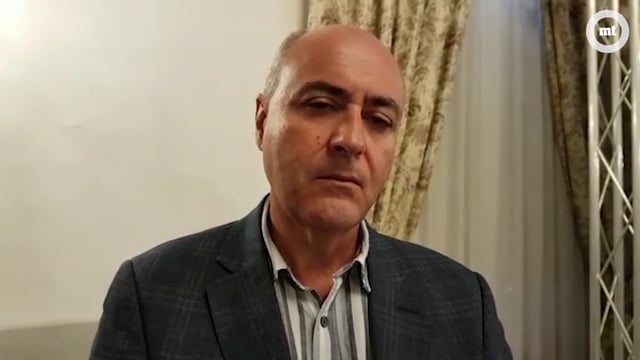[WATCH] Beware false nostalgia, Herrera says on progress and uprooted trees
The past was not as rosy as imagined, Environment Minister José Herrera says, underlining the need to strike balance between safeguarding the environment and economic progress


As Malta advances, it is important to find the right balance between protecting the environment and ensuring Malta's economy continues to develop, José Herrera said.
The Environment Minister observed that, although in the mid-20th century the island's natural surroundings were more pristine, people's quality of life wasn't up to today's standards, and that, with this in mind, people should avoid falling into the trap of false nostalgia.
Herrera said that his ministry was tackling the environmental challenges brought on due to Malta's growing population and economy by creating more natural parks and planting new trees to replace uprooted ones.
However, he remarked that, while in the 1950s the country might have had a more beautiful environment, the economy was not doing well, and poverty was a problem.
The minister was responding to questions from MaltaToday about the Central Link Project and its environmental impact, on the back of a press conference on Thursday regarding an agreement between his ministry, the Health Ministry and the Union Haddiema Maghqudin about a new collective agreement for specialised scientific officers.
Asked how he felt about the fact that the Central Link Project - which is being discussed by the Planning Authority right now and might be given the go ahead today - would be leading to the loss of 50,000 sq.m of agricultural land and around 200 protected trees, Herrera said that, while he was indeed worried about the heavy development characterising recent years, he felt that his ministry had managed to substantially minimise the project's environmental impact.
"I think we were considerably successful in the negotiations with the Infrastructure Ministry, in that we reduced by more than half the number of trees which need to be uprooted, and we laid out obligations to plant a considerable number of trees," Herrera said, "I am informed that around 1,500 trees will be planted to make up for those which will be uprooted. Moreover, compensation will also be paid to the Environment and Resources Authority."
He said that not carrying out any infrastructural work was not the way forward, but that more could be done to help Malta's environment, such as transforming abandoned land into nature areas.
"We've already experienced something similar in Ta' Qali, where the mini-industrial zone was transformed into a natural park. This is a form of land recycling," he said, "Infrastuctural work has to take place, but if there is land which can be rehabiliatated, then this should take place. This is what my ministry is focusing on."
Questioned on whether Malta's limited size meant the country could well risk losing large areas of agricultural land due to development, Herrera acknowledged that this was something which concerned him.
"I would be lying if I didn't say that I'm worried by the amount of development which has been taking place in the past years. I've been on record as saying that I am concerned about ODZ or natural land being built up. Our territorial size is what it is - around 320 sq.km," he underscored.
"But one must also understand our challenges. Malta has a very large population density. The country is going through a period of strong economic investment, and this brings with it environmental challenges. But to address this, you shouldn't eliminate economic progress but instead find innovative ways of countering the problems."
He emphasised that the government was progressively being more considerate in the way it addressed environmental challenges, as evidenced by the new fuel stations policy, and the ongoing ODZ policy revisions.
"In the last years, these aspects of policy are being given priority over others. The government is progressively being more careful in the way it addresses these challenges," Herrera highlighted.
"I've also used my powers under the law to declared large portions of lands as natural parks [...] so as to offer them a high degree of protection," he said, noting that he would shortly be announcing a proposal to transform another piece of land into a natural park.
"So the government is dealing with the challenges, but we cannot stifle progress. If we did this, we would risk turning to what I like to call false nostalgia," he said.
"The environment was nicer in the 1950s, because the population was smaller, there were more farmers and there was more countryside. But did people live better then? From an environmental aspect, yes. But from the economic side, no, because there was poverty," the minister said.
"When there is poverty, you cannot have a good quality of life, and to avoid poverty, you need investment and a strong economy. Therefore one needs to find a balance between these two phenomena - it is not always easy to do, but that is the duty which I have to strive to fulfil."




.png)


















